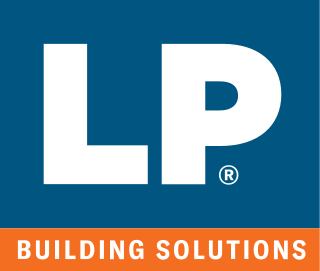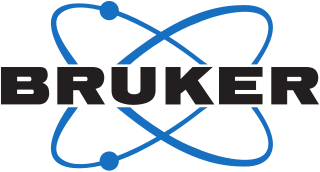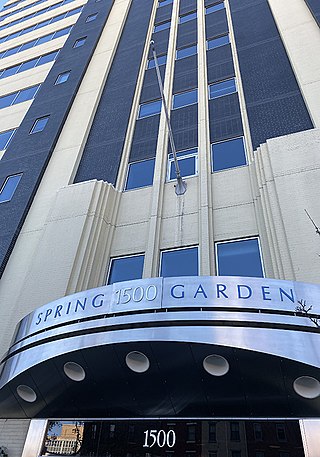
Corning Incorporated is an American multinational technology company that specializes in specialty glass, ceramics, and related materials and technologies including advanced optics, primarily for industrial and scientific applications. The company was named Corning Glass Works until 1989. Corning divested its consumer product lines in 1998 by selling the Corning Consumer Products Company subsidiary to Borden.

Primo Water Corporation is an American-Canadian water company offering multi-gallon bottled water, water dispensers, self-service refill water machines, and water filtration appliances. The company is headquartered in Tampa, Florida, and services residential and commercial customers across the United States, Canada, Europe, and Israel.
Owens Corning is an American company that develops and produces insulation, roofing, and fiberglas composites and related materials and products. It is the world's largest manufacturer of fiberglas composites. It was formed in 1935 as a partnership between two major American glassworks, Corning Glass Works and Owens-Illinois. The company employs approximately 19,000 people around the world. Owens Corning has been a Fortune 500 company every year since the list was created in 1955. The Pink Panther acts as the company's mascot and appears in most of their advertisements.
Amphenol Corporation is an American producer of electronic and fiber optic connectors, cable and interconnect systems such as coaxial cables. Amphenol is a portmanteau from the corporation's original name, American Phenolic Corp.

Masonite is a type of hardboard made of steam-cooked and pressure-molded wood fibers in a process patented by William H. Mason.

Louisiana-Pacific Corporation (LP) is an American building materials manufacturer. The company was founded in 1973 and LP pioneered the U.S. production of oriented strand board (OSB) panels. Currently based in Nashville, Tennessee, LP is the world's largest producer of OSB and manufactures engineered wood building products. LP products are sold to builders and homeowners through building materials distributors and dealers and retail home centers.

Hardboard, also called high-density fiberboard (HDF), is a type of fiberboard, which is an engineered wood product. It is used in furniture and in the construction industry.

Homasote is a brand name associated with the product generically known as cellulose-based fiber wall board, which is similar in composition to papier-mâché, made from recycled paper that is compressed under high temperature and pressure. Homasote contains no adhesives. It is held together by the surface tension between the paper fibers, a process that is augmented by hydrogen bonding and the presence of a wax binder. It is available in multiple thicknesses and comes in sheets 4 by 8 feet. The Homasote Company operates a 750,000-square-foot (70,000 m2) factory in the West Trenton section of Ewing Township, New Jersey.

Fiberboard or fibreboard is a type of engineered wood product that is made out of wood fibers. Types of fiberboard include particle board or low-density fiberboard (LDF), medium-density fiberboard (MDF), and hardboard or high-density fiberboard (HDF).

Kone Oyj is an elevator engineering company employing over 60,000 personnel across 60 countries worldwide. It was founded in 1910 and is now headquartered in Helsinki, Finland, with its corporate offices located in Espoo. In addition, Kone builds and services moving walkways, automatic doors and gates, escalators, and lifts. In the Finnish language, Kone means "machine".

The PACE Award is an annual award from Automotive News. The focus of the award is an innovation (i) developed primarily by a supplier, (ii) that is new to the automotive industry, (iii) that is in use, and (iv) that "changes the rules of the game". Awards have been given for products, materials, processes, capital equipment, software and services. A panel of independent judges from industry, finance, research, and academia choose finalists from the initial applicants, make site visits to evaluate the innovation, and then gather to select winners, independent of the sponsors. Winners to date include suppliers from Japan, Korea, China, the US, Canada, Brazil, Germany, France, Italy, Poland and other European countries. Among the most awarded companies over the years are BorgWarner, Delphi Automotive, Federal-Mogul, Valeo and PPG Industries as well as Robert Bosch GmbH, Gentex Corporation, and Siemens.

Bruker Corporation is an American manufacturer of scientific instruments for molecular and materials research, as well as for industrial and applied analysis. It is headquartered in Billerica, Massachusetts, and is the publicly traded parent company of Bruker Scientific Instruments and Bruker Energy & Supercon Technologies (BEST) divisions.
Microsemi Corporation was an Aliso Viejo, California-based provider of semiconductor and system solutions for aerospace & defense, communications, data center and industrial markets.
Midmark Corporation is an American company that manufactures medical, dental, and veterinary products and provides related services. It is a privately held company, and was founded in 1915 as The Cummings Machine Company. Headquartered in Dayton, Ohio. The company maintains production and administrative offices in Versailles, Ohio, as well as seven other locations in the US; one in Mumbai, India and one in Quattro Castella, Italy.

Ingredion Inc. is an American food and beverage ingredient provider based in Westchester, Illinois, producing mainly starches, non-GMO sweeteners, stevia, and pea protein. The company turns corn, tapioca, potatoes, plant-based stevia, grains, fruits, gums and other vegetables into ingredients for the food, beverage, brewing, and pharmaceutical industries and numerous industrial sectors. It has about 12,000 employees in 44 locations, and customers in excess of 120 countries.
IQE PLC is a British semiconductor company founded 1988 in Cardiff, Wales, which manufactures advanced epitaxial wafers for a wide range of technology applications for wireless, optoelectronic, electronic and solar devices. IQE specialises in advanced silicon and compound semiconductor materials based on gallium arsenide (GaAs), indium phosphide (InP), gallium nitride (GaN) and silicon. The company is the largest independent outsource producer of epiwafers manufactured by metalorganic vapour phase epitaxy (MOCVD), molecular beam epitaxy (MBE) and chemical vapor deposition (CVD).
Inteva Products, LLC is a global automotive supplier. Serving original equipment manufacturers (OEMs) in the automotive industry, Inteva is headquartered in Troy, Michigan and has nearly 30 locations on three continents. The Inteva Products brand name was introduced to the marketplace in 2008 and the company traces its history back to the establishment of German carriage supplier Traugott Golde in 1872.
Thorlabs, Inc. is an American privately held optical equipment company headquartered in Newton, New Jersey. The company was founded in 1989 by Alex Cable, who serves as its current CEO. His daughter, Jennifer Cable, serves as president. As of 2018, Thorlabs has annual sales of approximately $500 million. Outside its multiple locations in the United States, the company has offices in Brazil, Canada, China, France, Germany, Japan, Sweden, and the United Kingdom. It sells approximately 20,000 different products.
United States v. Masonite Corp., 316 U.S. 265 (1942), is a United States Supreme Court decision that limited the scope of the 1926 Supreme Court decision in the General Electric case that had exempted patent licensing agreements from antitrust law's prohibition of price fixing. The Court did so by applying the doctrine of the Court's recent Interstate Circuit hub-and-spoke conspiracy decision.

Clarivate Plc is a British-American publicly traded analytics company that operates a collection of subscription-based services, in the areas of bibliometrics and scientometrics; business / market intelligence, and competitive profiling for pharmacy and biotech, patents, and regulatory compliance; trademark protection, and domain and brand protection. In the academy and the scientific community, Clarivate is known for being the company that calculates the impact factor, using data from its Web of Science product family, that also includes services/applications such as Publons, EndNote, EndNote Click, and ScholarOne. Its other product families are Cortellis, DRG, CPA Global, Derwent, MarkMonitor, CompuMark, and Darts-ip, and also the various ProQuest products and services.











